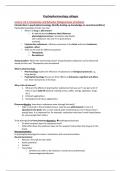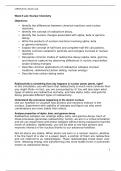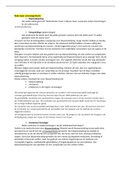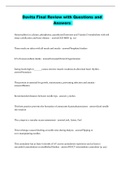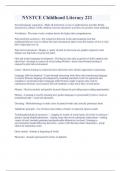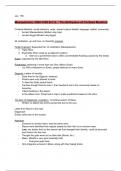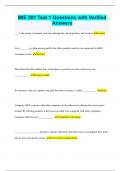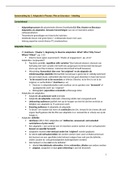Notes de cours
Uitgebreide college aantekeningen psychopharmacology
- Cours
- Établissement
- Book
Vorig jaar heb ik het vak psychopharmacology met een 9,5 afgerond! Ik heb toen uitgebreide hoorcollege aantekeningen gemaakt. De stof is dit jaar identiek op 1 college na. Dit betreft college 12 over hormonen. Deze aantekeningen heb ik dus niet.
[Montrer plus]
